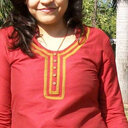In vivo genotoxicity evaluation of a plant based antiarthritic and anticancer therapeutic agent Boswelic acids in rodents.
Słowa kluczowe
Abstrakcyjny
The genotoxic potential of anti-inflammatory/anti-arthritic and anticancer plant based drug molecule Boswelic acids (BA) was studied by in vivo system. Systematic literature survey revealed that studies on the genotoxicity of BA are not available. Although reports on genotoxicity of Boswellia serrata dry extract and modified 3-O-acetyl-11-keto-beta-boswelic acid are available and these studies were conducted in in vitro systems. The earlier general toxicity study of BA has been conducted by us, revealed it to be non toxic. The genotoxicity was carried out in Wistar rats using different cytogenetic assay system-abnormalities viz. chromosomal aberrations; sperm morphology, micronuclei and comet assays. Six groups of animals, each comprised of five rats, were taken for each study. Group1-4 received BA at 125, 250, 500 and 1000 mg/kg p.o., respectively prepared as 2% gum acacia suspension, fifth group received a positive control cyclophosphamide (CP) 40 mg/kg p.o. or metronedazole (MTZ) 130 mg/kg p.o. or mercuric chloride (HgCl(2)) 0.864 mg/kg p.o. (as per the experiment requirement) whereas the sixth group kept as vehicle control. The results on the bases of the data obtained revealed that BA is quite safe as it did not show any genotoxicity at any dose level up to 1000 mg/kg. The positive controls used in different experiments showed highly significant abnormal cytogenetic changes in comparison to the control group.



